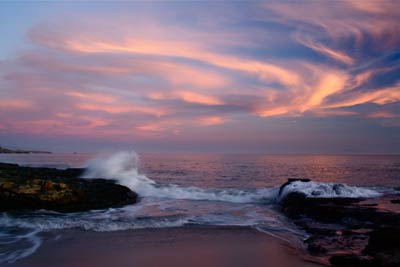All Nonfiction
- Bullying
- Books
- Academic
- Author Interviews
- Celebrity interviews
- College Articles
- College Essays
- Educator of the Year
- Heroes
- Interviews
- Memoir
- Personal Experience
- Sports
- Travel & Culture
All Opinions
- Bullying
- Current Events / Politics
- Discrimination
- Drugs / Alcohol / Smoking
- Entertainment / Celebrities
- Environment
- Love / Relationships
- Movies / Music / TV
- Pop Culture / Trends
- School / College
- Social Issues / Civics
- Spirituality / Religion
- Sports / Hobbies
All Hot Topics
- Bullying
- Community Service
- Environment
- Health
- Letters to the Editor
- Pride & Prejudice
- What Matters
- Back
Summer Guide
- Program Links
- Program Reviews
- Back
College Guide
- College Links
- College Reviews
- College Essays
- College Articles
- Back
Algae and You – An Introduction to Eutrophication
Eutrophication: It’s a fifty-cent word, but its effects are easy to understand. You may have heard about or even seen the effects of eutrophication at your local beach, especially if you live in the south. This has become a growing environmental issue, as our planet relies on the ocean for both the food we eat and the air we breathe. But past the name, what exactly is eutrophication, and why is it destructive?
When the weather turns warmer, bright red and white signs spring up to warn about algae blooms, large and sudden growths of frequently toxic algae. Eutrophication is the leading source of this phenomenon. It occurs when a body of water becomes extremely saturated with nutrients. As unused fertilizers from farms and other sources of phosphorus and nitrogen are swept into rivers that feed the ocean, the excess nutrients cause algae blooms. Nitrogen and phosphorus have been both discovered to be “limiting factors,” meaning their levels in the water determine how much algae can grow. Due to the limiting factor, the high amounts of these nutrients in the water create a perfect environment for the algae to grow.
After the algae bloom covers a large swath of the water’s surface, the bloom begins to block sunlight from reaching the water and prevents animals like phytoplankton, which are key to the food chains of the ocean, from getting sunlight. Moreover, eutrophication smothers the ocean when the algae bloom dies. As the bloom sinks to the bottom of the ocean, the process of decomposition uses up a significant portion of the oxygen dissolved in the ocean. The dissolved oxygen levels of the water are crucial for the survival of fish, mollusks, and all other forms of life underwater. Species that are able to move must relocate to more oxygenated regions, while stationary crustaceans and shrimp die.
If we continue to pump nutrients into the ocean, the saying, “there are plenty of fish in the sea,” may not hold true for much longer. Not only will your local beaches be clogged with algae, but local fisheries will suffer large reductions in their annual hauls. Less fish means less work for fishermen and related industries, less food for humans, and less food for the ocean ecosystem. Furthermore, the fish and shellfish that are caught are frequently lower quality and unhealthier due to the toxic algae. Popular fish, such as trout and salmon, are especially prone to dying from algae blooms, meaning fewer desirable species like carp will proliferate and the prices for desirable fish will rise.
Our lives and the ocean are surprisingly interconnected. Solving the issue of eutrophication is certainly the responsibility of policymakers and farmers, but that doesn’t mean you can’t help out at home! To start fighting against eutrophication, you should first know that the storm drains you might see around your neighborhood lead right to your local river or creek, which will eventually flow out into the ocean. Many people don’t realize this and dump poisonous chemicals or fertilizer straight down the drain. You should NEVER do that! Always be sure to properly dispose of nutrients such as lawn fertilizer, grass clippings, and other yard waste. Additionally, make sure to always pick up after your pet. The waste that pets produce can quickly add up after being washed into storm drains. All of these sources have the nitrogen and phosphorus that algae blooms need to grow.
If you’d like more of a lifestyle change, try eating less beef. The crops grown to feed cattle require a lot of fertilizer, which is then washed away by rain and into rivers that feed into the ocean. By eating less beef, you can help decrease the number of crops grown to feed the cattle and therefore the amount of nutrients washed into the ocean. You can also grow your own food in a backyard garden. Instead of buying from farms that may not track their application of fertilizer, you can ensure that no fertilizer is washed away in your own personal garden. Furthermore, you could even make your own fertilizer through compost, a way that is sustainable and less likely to wash away!
The eutrophication of our oceans is certainly a daunting issue, but every person’s habits count! Although your actions may seem small, next time you are looking over the menu at a restaurant, just think about what could happen if everyone could just skip that juicy burger for another, more sustainable choice!

Similar Articles
JOIN THE DISCUSSION
This article has 0 comments.
